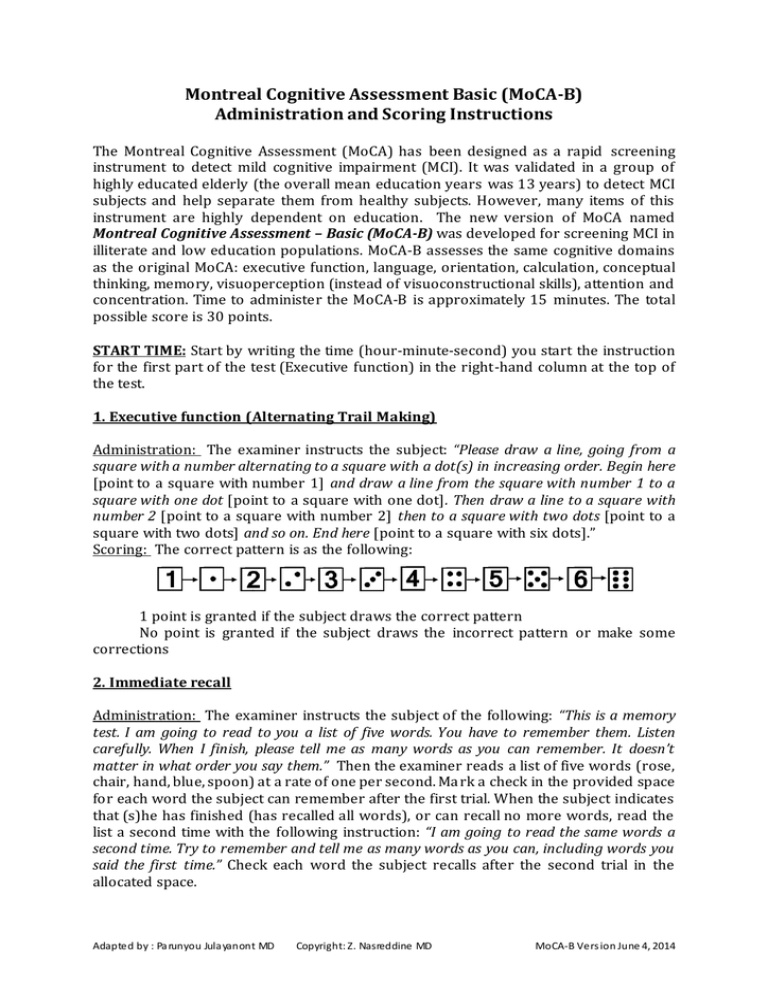

A CPS or CPS2 score of 0 (intact cognition) corresponds to MoCA 5-min scores of 24 and 25, respectively. Results: 3,543 participants had valid data on both scales 66% were female and their average age was 78.9 years (SD = 8.2). We performed equipercentile linking with bivariate log-linear smoothing to establish equivalent scores between the two scales. Each participant's cognitive performance was assessed using CPS, CPS Version 2 (CPS2), and MoCA 5-min. The program used the interRAI-Check Up instrument for needs assessment and service matching between 20. Methods: We included individual-level data from persons who participated in a home- and community-based care program for older people with mild impairment in Hong Kong. This study linked scores from the Montreal Cognitive Assessment-5 min (MoCA 5-min) to the interRAI cognitive Performance Scale (CPS), commonly adopted tools in clinical and long-term care settings, respectively.

memory care assisted living/dementia careĪlthough it can be hard to seek care for a loved one with dementia, it’s important to reach out for help.As dementia or Alzheimer’s becomes more severe, however, you will likely need more hands-on, round-the-clock help. With the use of home health care, companion care services, and adult day care, your loved one can get the help they need with day-to-day activities. If you have a loved one who is diagnosed with dementia, he or she may be able to continue living at home at first. The test should not be used by itself to determine if someone has dementia. Your loved one just needs to answer the questions as best as possible. You can’t pass or fail it, and you can’t study for it. If someone you care for is taking the MMSE, there’s no need to worry about the test itself. All of these steps, along with the results of a mental status test like the the MMSE, help a provider determine if a person has dementia. In fact, health care providers typically will look at a patient’s medical history, physical exam results, and sometimes neurological test results, including brain scans. The MMSE is not the only test used to determine if someone has dementia. This is why results from a patient’s other health exams are also important to consider. For example, some health care providers will consider a score of 26 or 27 to be mild dementia. Not all health care professionals agree on the cut-offs for each stage of dementia. The scores are generally grouped as follows: The MMSE has a maximum score of 30 points. It’s common for someone with Alzheimer’s disease to have a score that goes down two to four points each year, according to the Alzheimer’s Association. Scores on the higher end indicate a higher cognitive function, while lower scores signal more severe cases of dementia. The answers are scored, and that score suggests the level of dementia the patient may have.
#Moca testing score professional#
This test is used around the world and is easy to administer During the test, a health care professional will ask the patient questions that relate to memory, concentration and the ability to follow instructions. When a health care provider suspects that someone may have memory loss, he or she may give a test called the Mini-Mental State Examination (MMSE). Eventually, the person who has it is unable to function in daily life. With Alzheimer’s, memory loss gets worse over time. Memory loss is the key symptom of Alzheimer’s disease and other dementias. Plus, not everyone who gets Alzheimer’s is older - in fact, there are about 200,000 Americans with Alzheimer’s who are 65 or younger. Alzheimer’s disease makes up 60 to 80 percent of dementia cases.Īlthough it’s common to have some memory loss as we get older, Alzheimer’s disease is not a normal part of aging. Symptoms of Alzheimer’s get worse over time. Alzheimer’s disease is a specific form of dementia. Dementia is a decline in mental ability that is severe enough to affect daily life. When a loved one develops dementia, you may feel worried and overwhelmed about the situation.


 0 kommentar(er)
0 kommentar(er)
